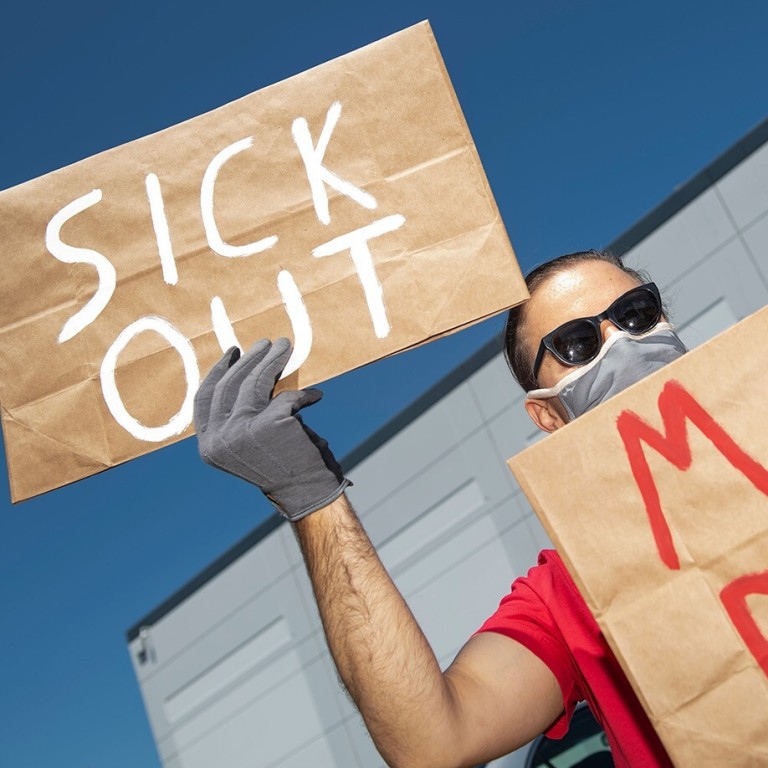
Meritocracy is broken. In the post-pandemic world, the best need to take care of the rest
- In the US, new technology has divided society into technocratic and industrial classes, and the pandemic has thrown this divide into sharper relief. In the post-coronavirus economy, the question of social fairness must be addressed
American capitalism works on the basis that all are free to pursue their goals, so the best, brightest and most competitive can rise to the top. Competitive freedom is at the heart of a meritocratic society.
British sociologist Michael Young invented the word meritocracy in his 1958 satire, The Rise of the Meritocracy. He wrote: “Today we frankly recognise that democracy can be no more than aspiration, and have rule not so much by the people as by the cleverest people; not an aristocracy of birth, not a plutocracy of wealth, but a true meritocracy of talent.”
He foresaw that the rise of the meritocratic class would divide society into the elite and the non-elite, who would come to realise that members of the elite were governing not in society’s interests but in their own interests.
This abuse of power by the elite is exemplified by the shareholder-value model of corporate governance. The model suggests that a company should pay top dollar for management to maximise shareholder value. Top management talent are given share options so as to align their interests with those of shareholders.
The assumption is that profitable and efficient companies create value for shareholders and society. However, in practice, many managers use the corporate cash for share buy-backs to prop up the value of their share options, sell valuable assets to maintain quarterly earnings and sack staff whenever profits are threatened.
The best can’t be working for the rest when they are looking out for their own interests first.
Coronavirus could leave the world an even more unequal place
As political scientists Jeff D. Colgan and Robert O. Keohane argued in Foreign Affairs magazine in 2017: “Elites have taken advantage of the global liberal order – sometimes inadvertently, sometimes intentionally – to capture most of the income and wealth gains in recent decades, and they have not shared much with the middle and lower classes.”
This raises a fundamental question of social fairness. Can we still afford to pay financial engineers very high salaries, when the ability of banks to make money is less dependent on public deposits than central banks’ monetary creation? Why should public health workers, who are putting their lives on the line in the pandemic, be paid significantly less than software technicians?
The market cannot price in the social value of different jobs. But if we support minimum wages, to be fair, surely we can consider caps on salaries for less-socially-useful jobs.
Governments may have to increase expenditure in a few areas going forward. First, there is the cost of keeping firms and jobs alive during lockdowns. Second, investment may be necessary to help viable firms make a transition to the post-coronavirus economy.
Last but not least, workers have to be retrained to do jobs in the post-Covid-19 economy; here, governments will have to rely on big tech. However, new technology might not create so many new jobs.
In adapting to survive, we need to build in redundancy and be resilient to future shocks. It must be recognised what is resilient is not the most efficient. There are no best solutions going forward.
In a post-pandemic world, the best cannot be the enemy of the good. The best should take care of the rest. This means cooperation, empathy and putting people first. Our hearts go out to the tens of thousands who might die as Trump continues to put “America first”. If that is the best model, the best is not for me.
Andrew Sheng writes on global issues from an Asian perspective. The views expressed are solely those of the author
Help us understand what you are interested in so that we can improve SCMP and provide a better experience for you. We would like to invite you to take this five-minute survey on how you engage with SCMP and the news.

